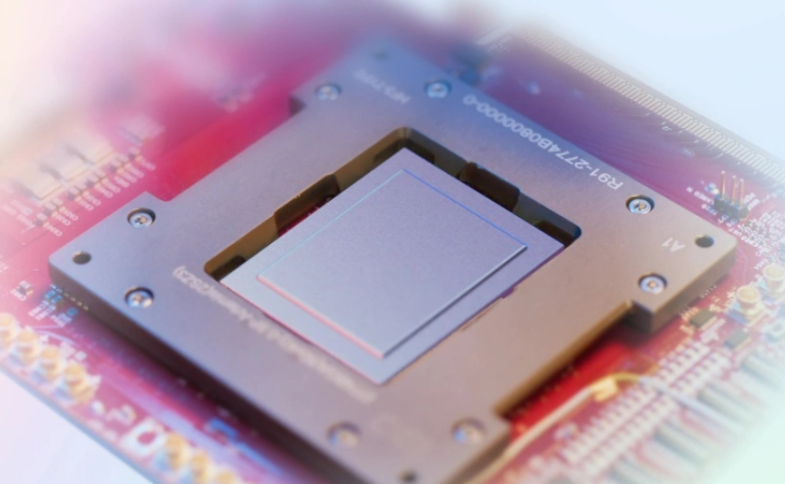Meta Platforms Inc. has reportedly acquired an artificial intelligence chip startup called Rivos Inc. as it looks to boost its in-house semiconductor design efforts and reduce its reliance on third-party hardware.
Rivos, based in Santa Clara, California, is said to be focused on designing chips based on the open-source RISC-V architecture, which is an alternative to Intel Corp.’s and Advanced Micro Devices Inc.’s x86 architecture.
The terms of the acquisition are unclear, according to anonymous sources who spoke to Bloomberg and Reuters, and neither company would comment on the report today, although it has apparently been confirmed by Meta Vice President of Engineering Yee Jiun Song in a post on LinkedIn.
Song said Meta will leverage Rivos’s expertise to expand work on the Meta Training and Inference Accelerator, or MTIA, which is its family of custom-built, in-house AI accelerator chips. “I’m excited to share that Meta intends to acquire Rivos Inc. to help us accelerate our vision for scalable compute to power our AI ambitions,” he wrote. “Rivos has deep technical expertise and experience designing and developing the full stack of AI systems.”
Rivos, which does not currently sell any products, was earlier said to be developing chips that are optimized for AI inference workloads. On its website, it states that the chips will combine a graphics processing unit with multiple central processing units, suggesting that it will likely compete with Nvidia Corp.’s upcoming Rubin CPX chip, which features a similar multi-processor design and is expected to launch next year.
Vera Rubin’s CPUs are based on Arm Holdings Plc’s popular Arm instruction set architecture. Rivos’ use of the RISC-V architecture could therefore be advantageous, as it means it can avoid the expensive licensing fees Arm charges for companies wanting to access its blueprints.
Rivos’ chip is said to include a new RISC-V component called the RVA23 Profile, which it helped to develop. This technology adds support for vector extensions, or low-level computing operations that enable CPUs to run AI models, data analytics and other data-intensive workloads more efficiently. The chip is also expected to feature “terabytes” of memory, including both dynamic random-access memory and high-bandwidth memory modules. HBM is a faster version of RAM that’s widely used in AI accelerators, because it supports more rapid data movement.
While Meta hasn’t revealed how much it is paying to acquire Rivos, it’s likely that the figure would be in the billion-dollar range. In August, reports emerged that the startup was holding talks with investors over a possible funding round of between $300 million and $400 million, which would have increased its value to more than $2 billion.
Meta is keen to expand its in-house chip efforts because its AI research is almost exclusively reliant on third-party semiconductor hardware. The company has spent billions of dollars on acquiring and renting chips from Nvidia and other manufacturers, such as Advanced Micro Devices Inc. In addition, it has spent billions more on renting AI infrastructure from third-parties. Just today, it revealed it has signed a new $14.2 billion deal with the cloud data center operator CoreWeave Inc. to ensure access to AI chips for the next six years.
Earlier this year, Meta founder and Chief Executive Mark Zuckerberg said the company’s capital expenditures are likely to exceed $70 billion this year, with most of that being spent on pursuing its AI goals.
By producing its own AI chips, Meta could theoretically save billions of dollars by reducing its reliance on Nvidia and cloud data center operators. The last significant report mentioning Meta’s work on the MTIA chip was in March, when Reuters said it was testing the chip for AI training and inference workloads.
The report added that Meta was working with Taiwan Semiconductor Manufacturing Co. to manufacture its new chip, and that it had already completed its first “tape-out,” which is a key step that assesses the feasibility of chip designs. The involvement of TSMC is notable, as Rivos is also working with the Taiwanese chip giant to manufacture its chips.
Photo: Meta Platforms
Support our mission to keep content open and free by engaging with theCUBE community. Join theCUBE’s Alumni Trust Network, where technology leaders connect, share intelligence and create opportunities.
- 15M+ viewers of theCUBE videos, powering conversations across AI, cloud, cybersecurity and more
- 11.4k+ theCUBE alumni — Connect with more than 11,400 tech and business leaders shaping the future through a unique trusted-based network.
About News Media
Founded by tech visionaries John Furrier and Dave Vellante, News Media has built a dynamic ecosystem of industry-leading digital media brands that reach 15+ million elite tech professionals. Our new proprietary theCUBE AI Video Cloud is breaking ground in audience interaction, leveraging theCUBEai.com neural network to help technology companies make data-driven decisions and stay at the forefront of industry conversations.











